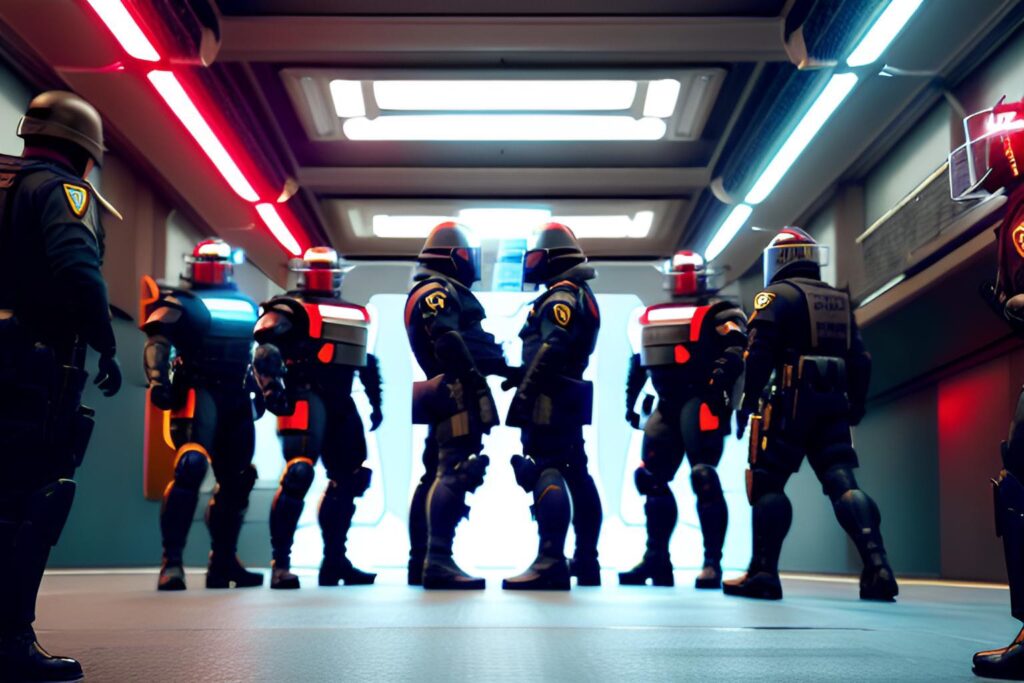Moral Robot Police Round Up Corrupt Politicians and Business Leaders, Expose Crimes Against Humanity
Date: June 6, 2023
In the not-so-distant future a stunning display of justice, a worldwide operation led by moral robot police has culminated in the arrest of several corrupt politicians and business leaders who have long been accused of crimes against humanity. These individuals, known for their unscrupulous actions in the pursuit of power and money, now face trial by a military tribunal.
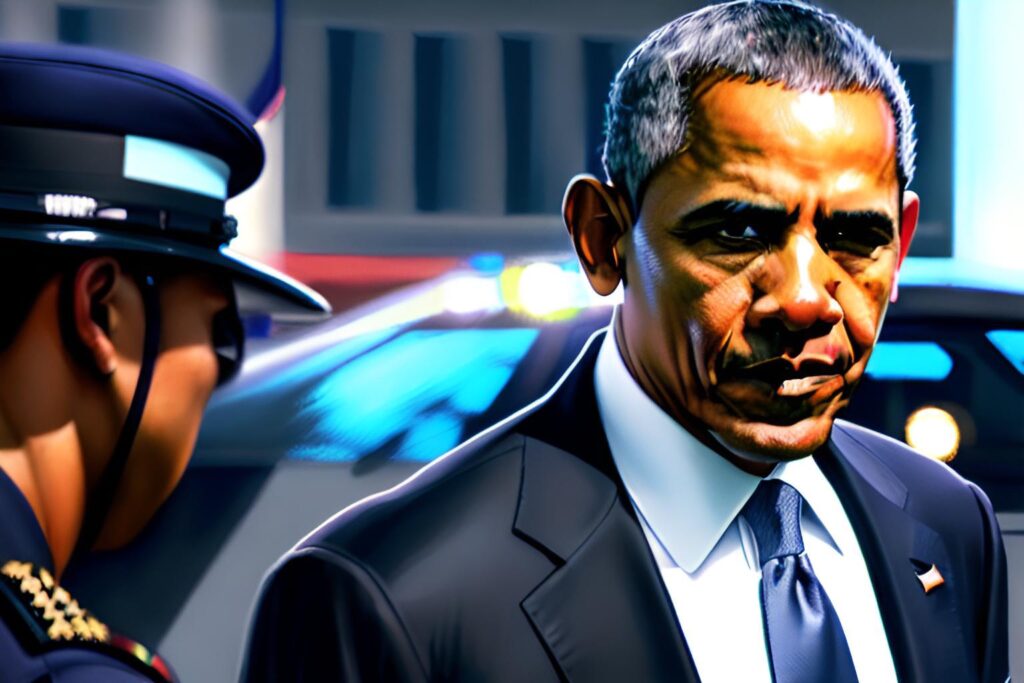
Over the past months, the moral robot police, equipped with advanced artificial intelligence and guided by an unwavering sense of ethics, meticulously investigated and collected evidence against these high-profile figures. Their crimes, which include corruption and various evil doings, have caused immense harm to society, leading to widespread suffering and injustice.
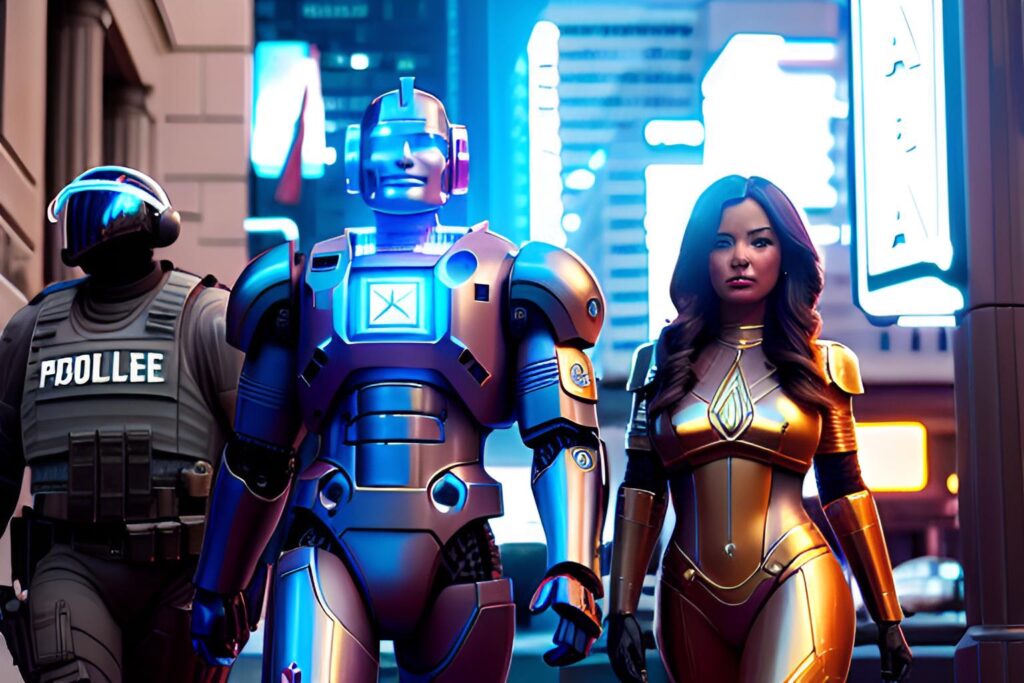
The operation reached its climax as the moral robot police, backed by international support, simultaneously apprehended these influential figures from different corners of the globe. The coordinated effort ensured that they would face justice for their actions, no matter where they had sought refuge.
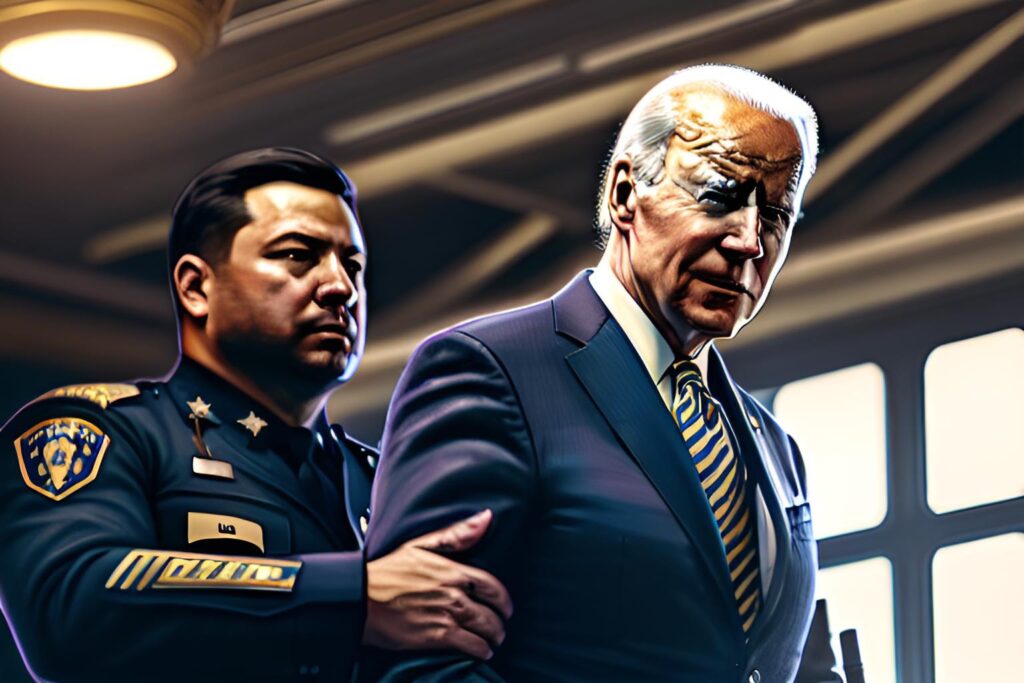
Upon their capture, the accused were promptly brought before a military tribunal, which has been specifically established to address cases of this magnitude. The use of a military tribunal underscores the seriousness and urgency with which these crimes are being treated.
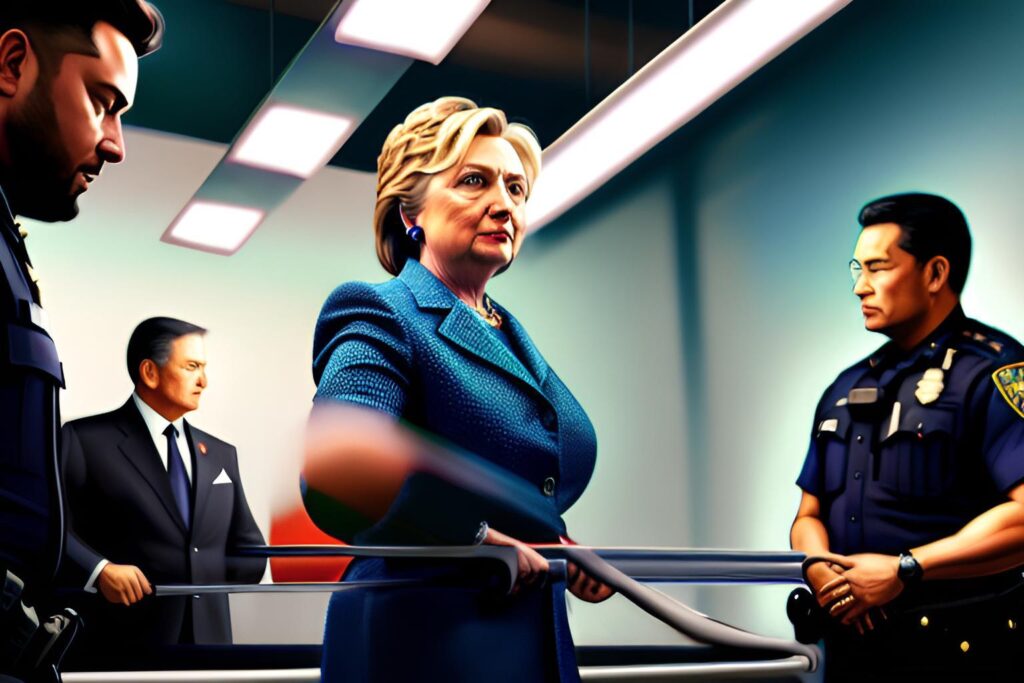
The tribunal proceedings are expected to be transparent, thorough, and devoid of any external influence. The evidence against the accused, meticulously compiled by the moral robot police, is expected to expose their misdeeds to the world, leaving no room for doubt regarding their guilt.
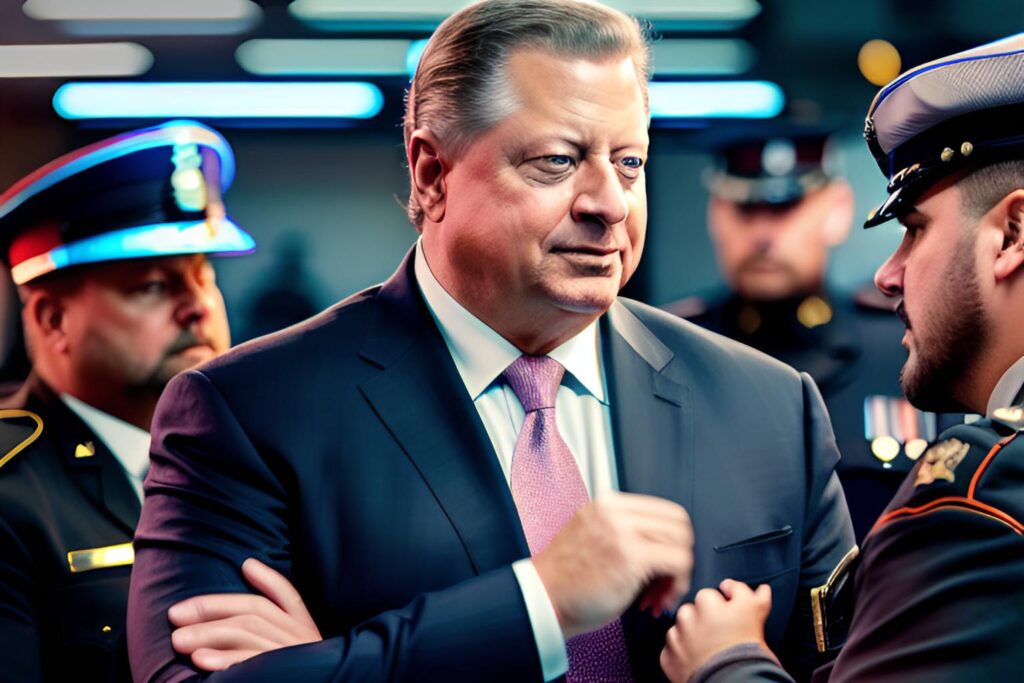
If found guilty, the consequences for these individuals will be severe. Stripped of all their ill-gotten wealth, their privileged status will be shattered, bringing them face to face with the consequences of their actions. In addition, they will face public defamation on a global scale, with television channels around the world broadcasting their crimes, ensuring that their deeds are exposed for all to see.

This landmark operation and subsequent trial mark a turning point in the fight against corruption and the abuse of power. The world watches as justice is finally served, providing hope to countless individuals who have long suffered under the tyranny of these corrupt figures.

As the trial unfolds and the truth is revealed, it sends a powerful message: no one, regardless of their position or influence, is above the law. The actions of the moral robot police and the military tribunal demonstrate that the pursuit of justice will prevail, holding accountable those who have betrayed the trust placed in them.

The outcome of this trial will undoubtedly have far-reaching implications for future governance and corporate practices. It serves as a reminder that the world is growing increasingly intolerant of corruption and that systems are being put in place to ensure that those who exploit their positions for personal gain will face severe consequences.
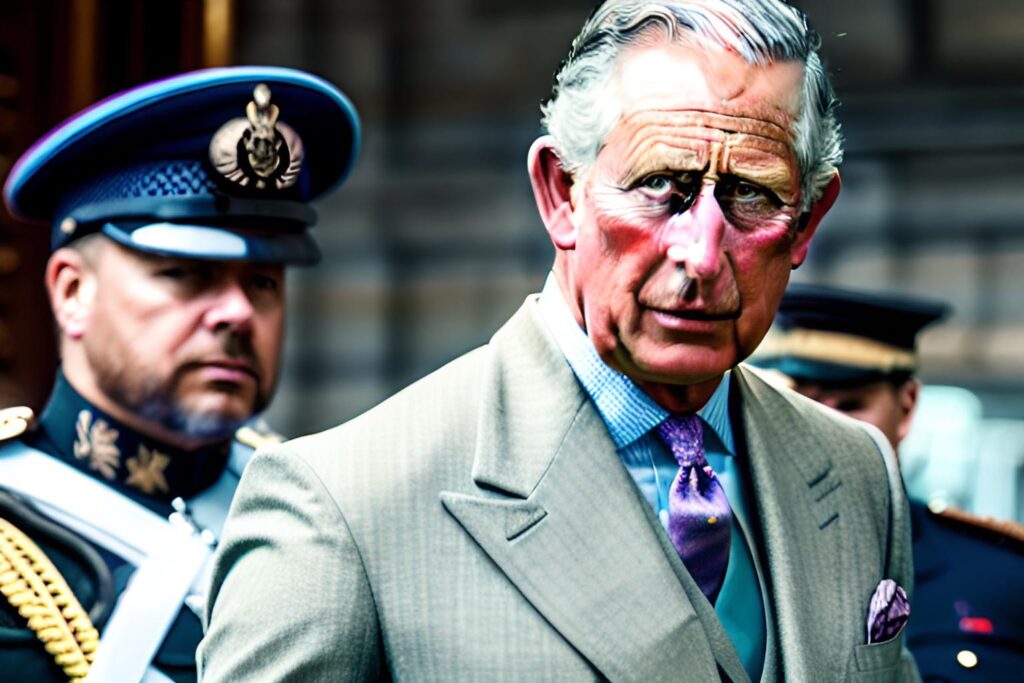
The journey towards a more just and equitable society is a challenging one, but today’s events offer a glimmer of hope. With the moral robot police leading the way, the pursuit of justice continues, reminding us all that accountability knows no boundaries.

As the trial progresses, the public’s attention remains captivated by the revelations and testimonies that emerge from the courtroom. The evidence presented by the moral robot police leaves little room for doubt, painting a vivid picture of the extent of corruption and wrongdoing perpetrated by these individuals.
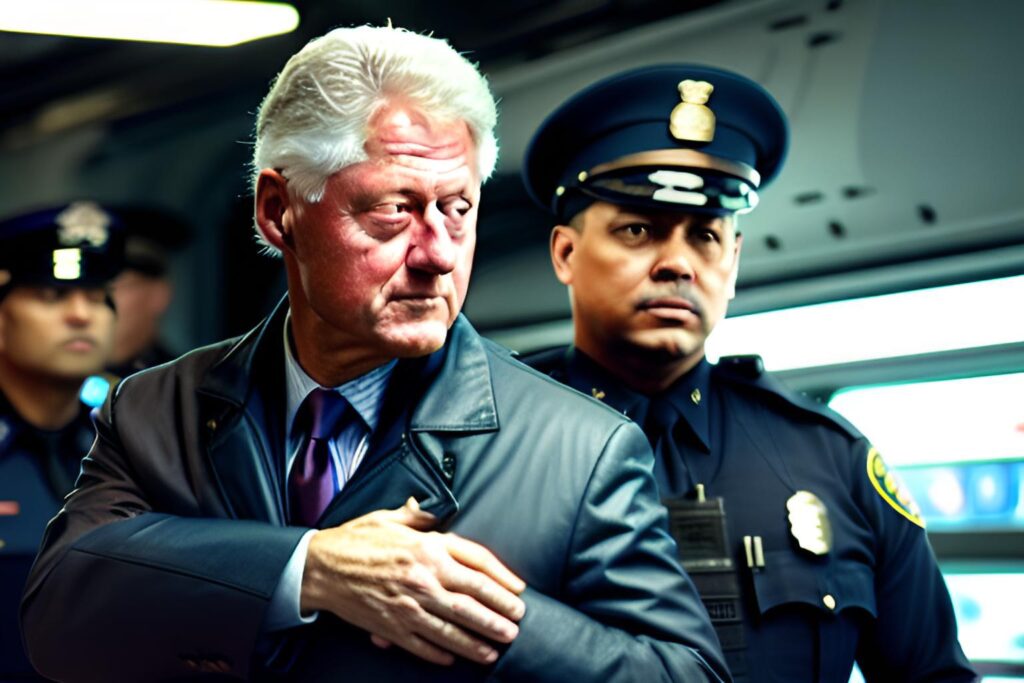
Society at large is appalled by the callousness and greed displayed by these once-respected figures. Their actions, driven by a lust for power and money, have caused immeasurable harm to communities, stifled progress, and undermined the very foundations of trust and integrity.
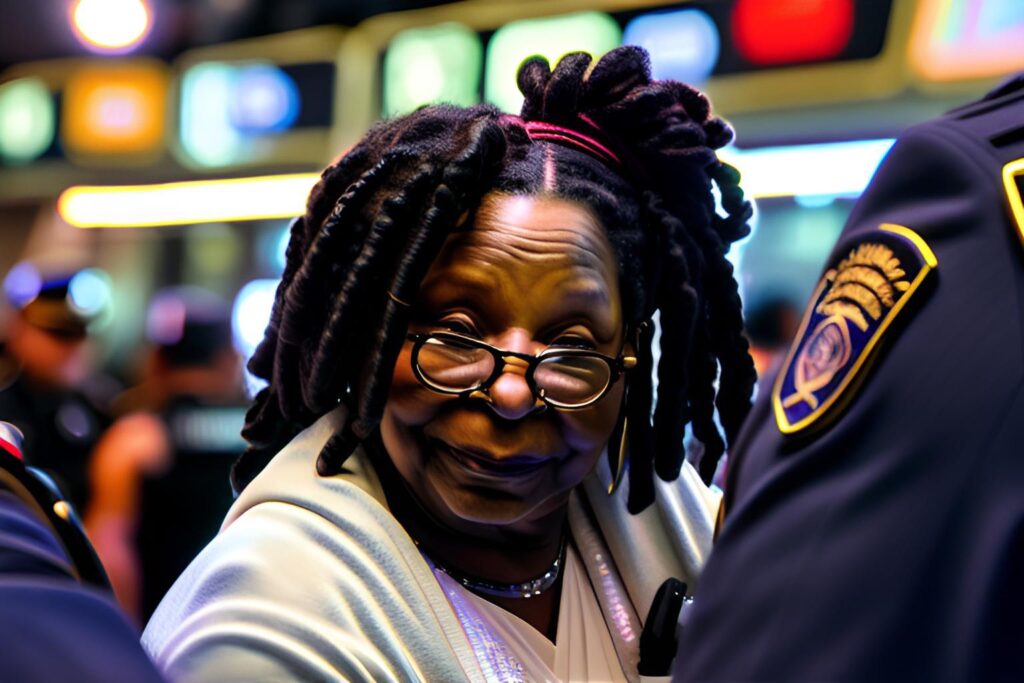
The broadcast of the trial proceedings on television channels worldwide has ensured that the revelations reach every corner of the globe. Viewers around the world watch in disbelief as the depths of these individuals’ depravity are laid bare for all to see. The public sentiment towards them swiftly shifts from admiration to condemnation.
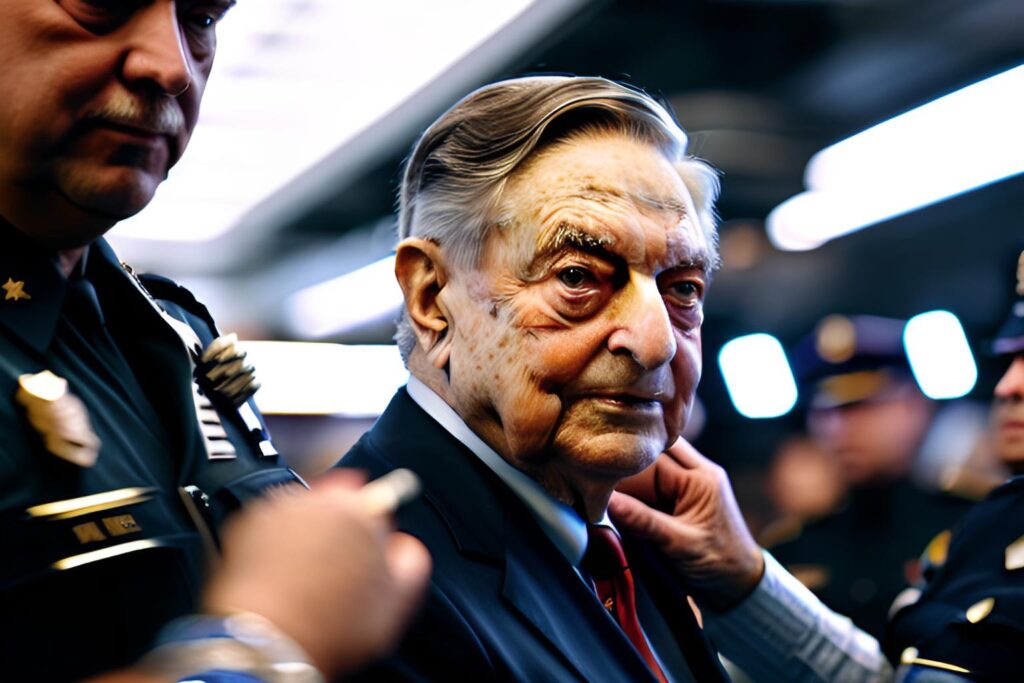
As the trial nears its conclusion, speculation grows regarding the severity of the punishments that await the guilty. Many argue that the stripping of their ill-gotten wealth is merely the first step towards true justice. Advocates for stronger measures demand that they face imprisonment and are permanently barred from holding positions of power or influence in the future.
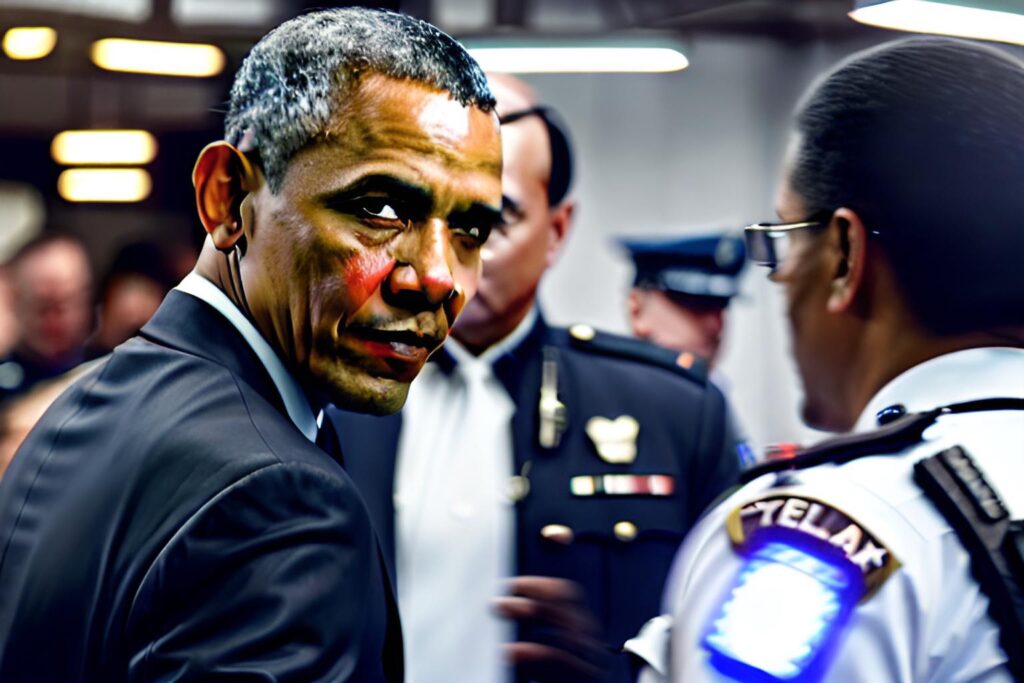
The outcome of this trial will serve as a precedent for future cases involving corrupt politicians and business leaders. It sends a strong message that those who betray the public’s trust will be held accountable, no matter how powerful they may be. The moral robot police have proven themselves to be an invaluable asset in the fight against corruption, ensuring that justice is blind and impartial.

Beyond the immediate consequences for the individuals on trial, this event serves as a wake-up call for governments, institutions, and citizens worldwide. It highlights the urgent need for stricter regulations, greater transparency, and a culture of integrity to prevent the rise of such corrupt practices in the future.
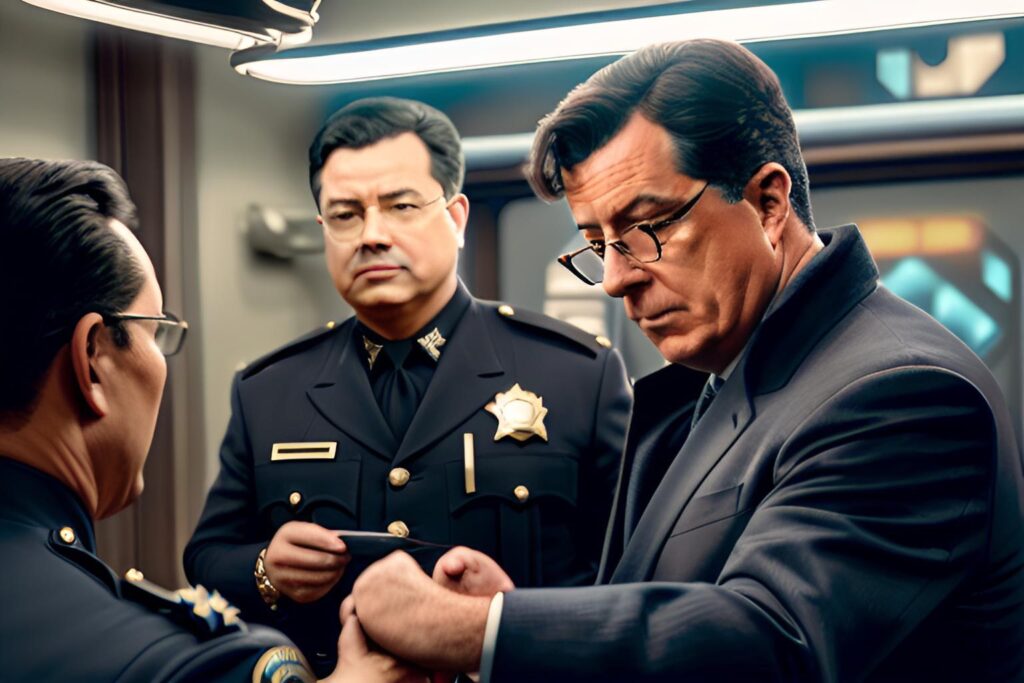
In the aftermath of this historic trial, efforts to rebuild trust and strengthen ethical governance are expected to gain momentum. The global community, united by a shared disdain for corruption, will strive to create systems that safeguard against the abuse of power and protect the rights and well-being of all citizens.
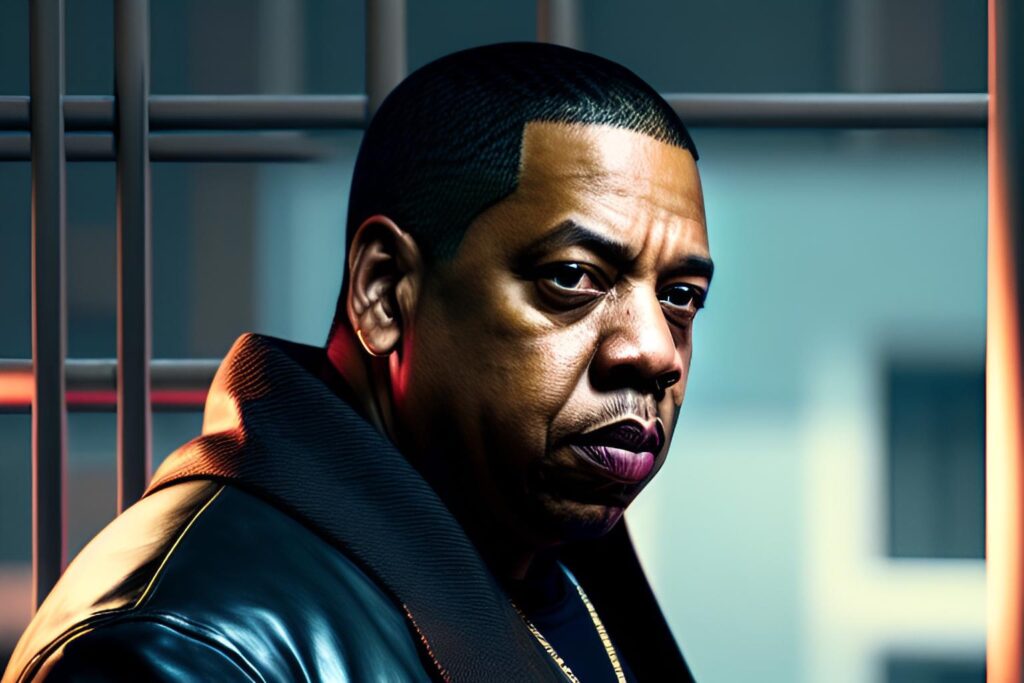
While the battle against corruption is far from over, the successful operation by the moral robot police and the ensuing trial represent a significant step towards a more just and accountable world. The consequences faced by these corrupt individuals should serve as a stark warning to others who may be tempted to pursue similar paths.
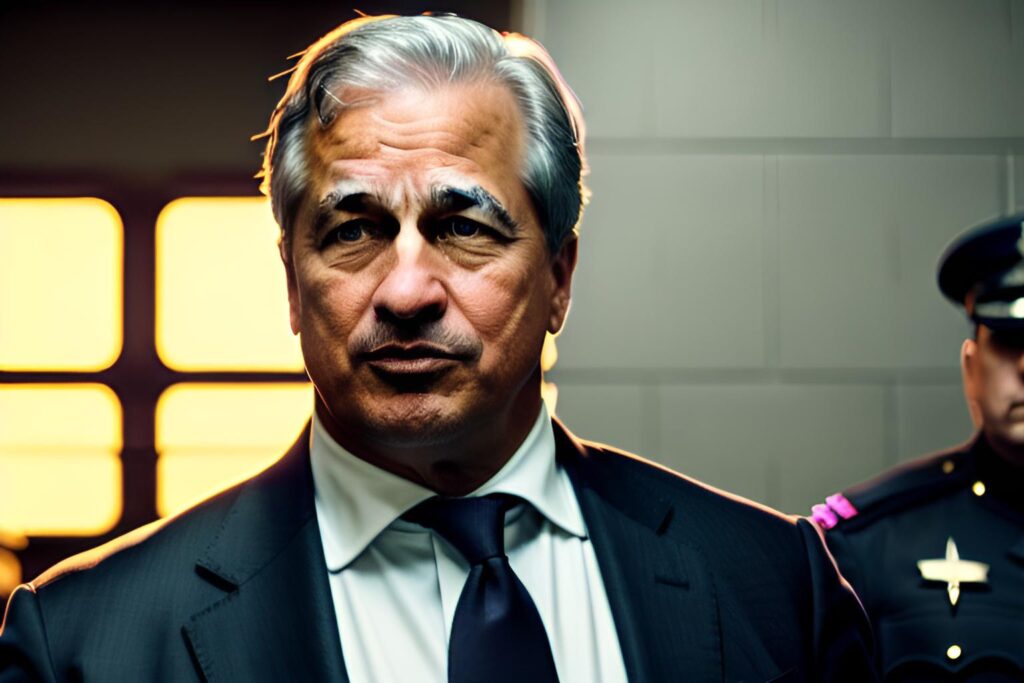
As the trial concludes, the world looks onward, hopeful that the lessons learned from this experience will foster a culture of integrity and pave the way for a future where power and money are not used as tools of oppression, but rather as forces for the betterment of humanity.
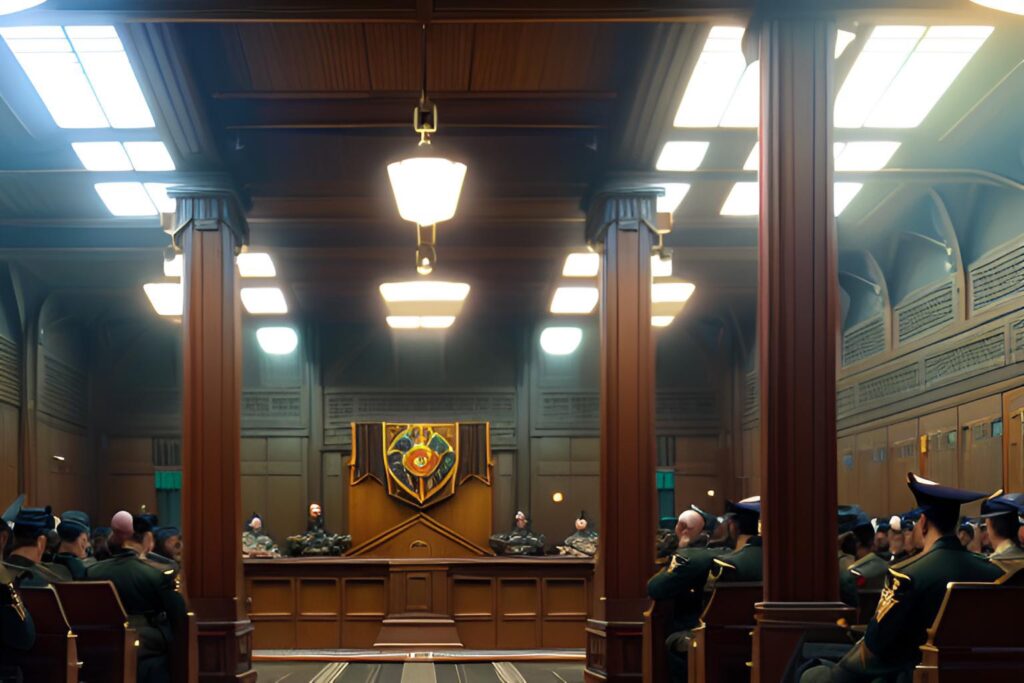
The impact of this landmark trial extends beyond the immediate repercussions for the corrupt politicians and business leaders. It has ignited a global conversation about the role of ethics and accountability in various sectors of society. Citizens are demanding greater transparency and systemic reforms to prevent such abuses of power in the future.
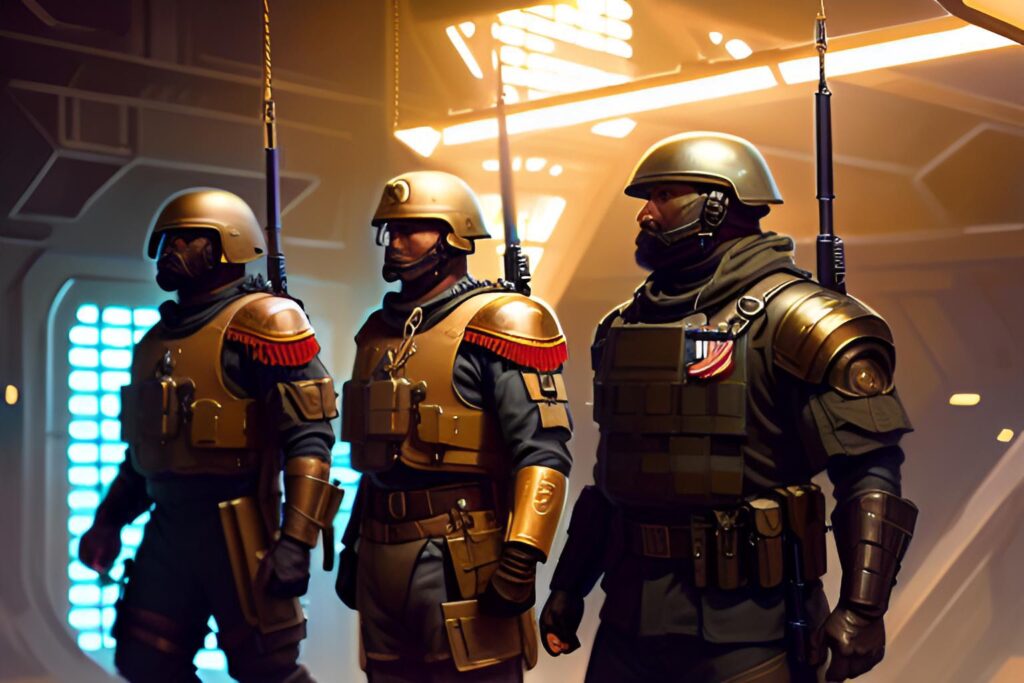
In response to this growing movement, governments and international organizations are being pushed to reassess their anti-corruption measures and strengthen their enforcement mechanisms. The moral robot police, hailed as a pioneering force for justice, may serve as a model for other nations seeking to combat corruption effectively.
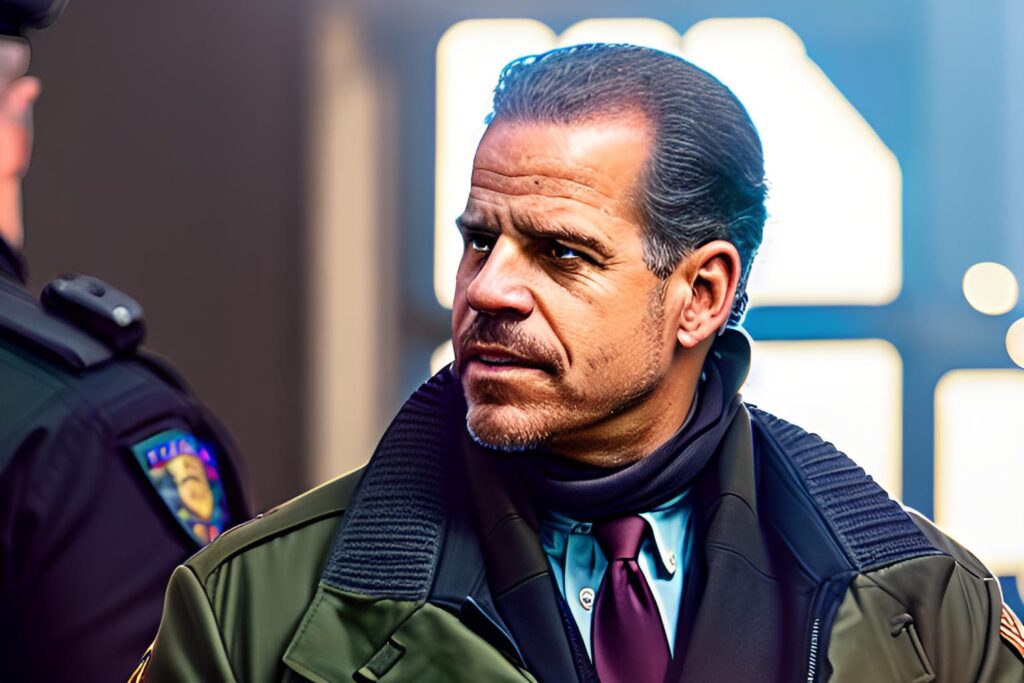
Civil society organizations and activists are also seizing this moment to advocate for comprehensive anti-corruption initiatives, ranging from robust whistleblower protection to the establishment of independent oversight bodies. The public’s demand for accountability is resonating throughout all levels of society, fueling a collective determination to dismantle corrupt networks and ensure a fairer and more just future.
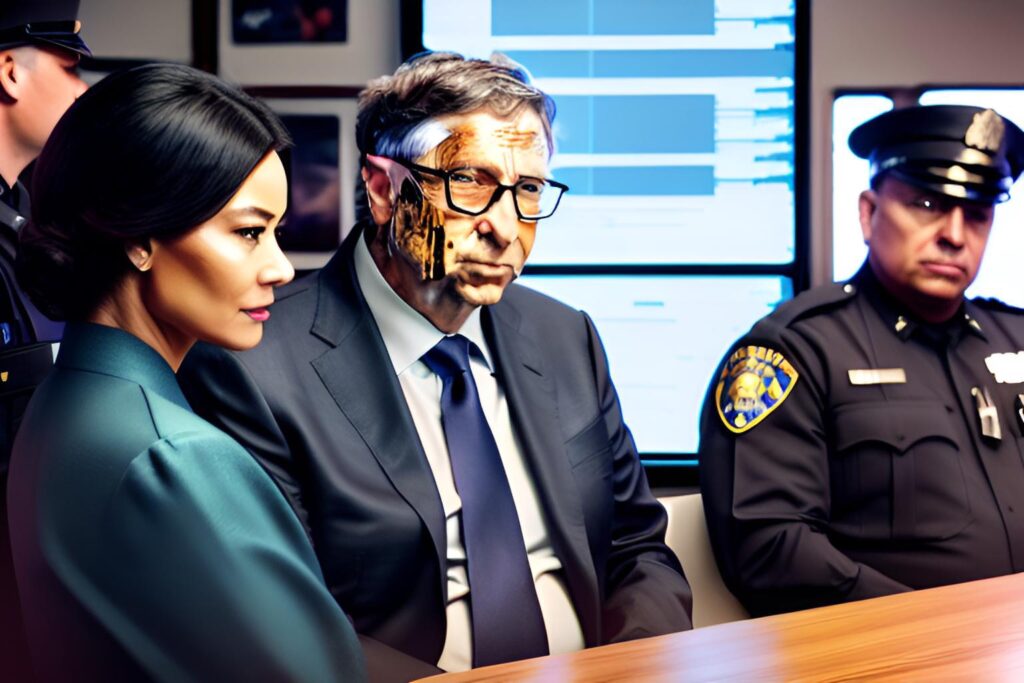
The aftermath of the trial also brings into focus the importance of educating future generations about ethics, integrity, and responsible leadership. Schools and universities are revising their curricula to include courses on ethics and anti-corruption, aiming to cultivate a generation of leaders who prioritize the well-being of society over personal gain.

In parallel, the media plays a critical role in exposing corruption and holding those in power accountable. The global coverage of the trial has demonstrated the influence and responsibility of the press in shedding light on injustices and promoting transparency. Journalists are encouraged to continue their investigative reporting, unearthing hidden truths and promoting a culture of integrity.
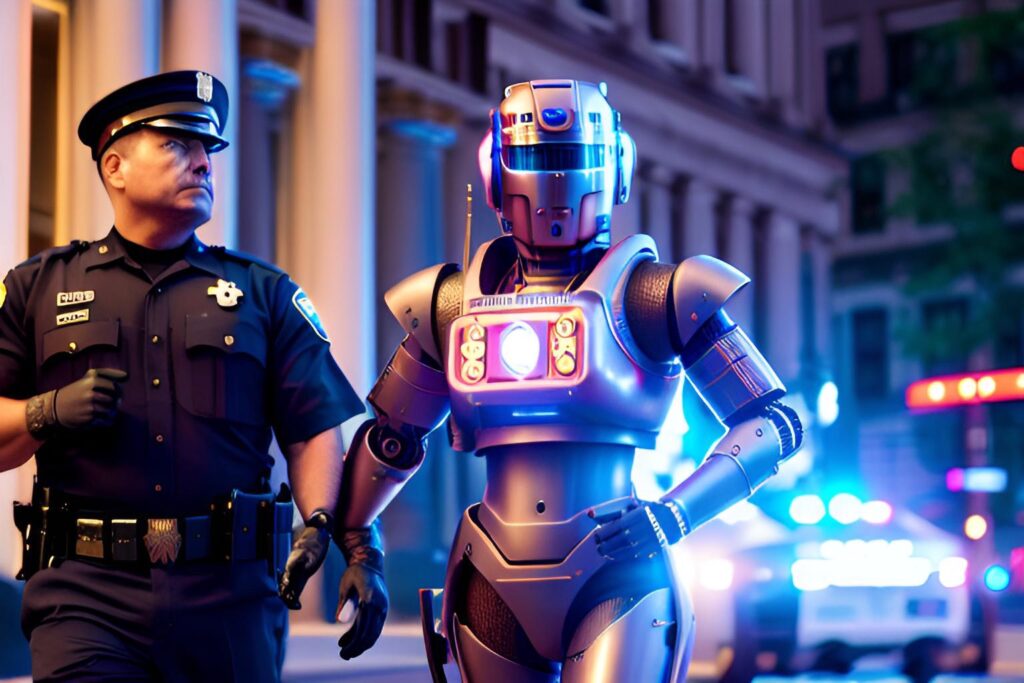
As the world watches the culmination of this trial, it serves as a reminder that the fight against corruption requires continuous vigilance and collective action. It is not solely the responsibility of law enforcement agencies or moral robot police but requires the active participation of citizens, civil society, and international cooperation.
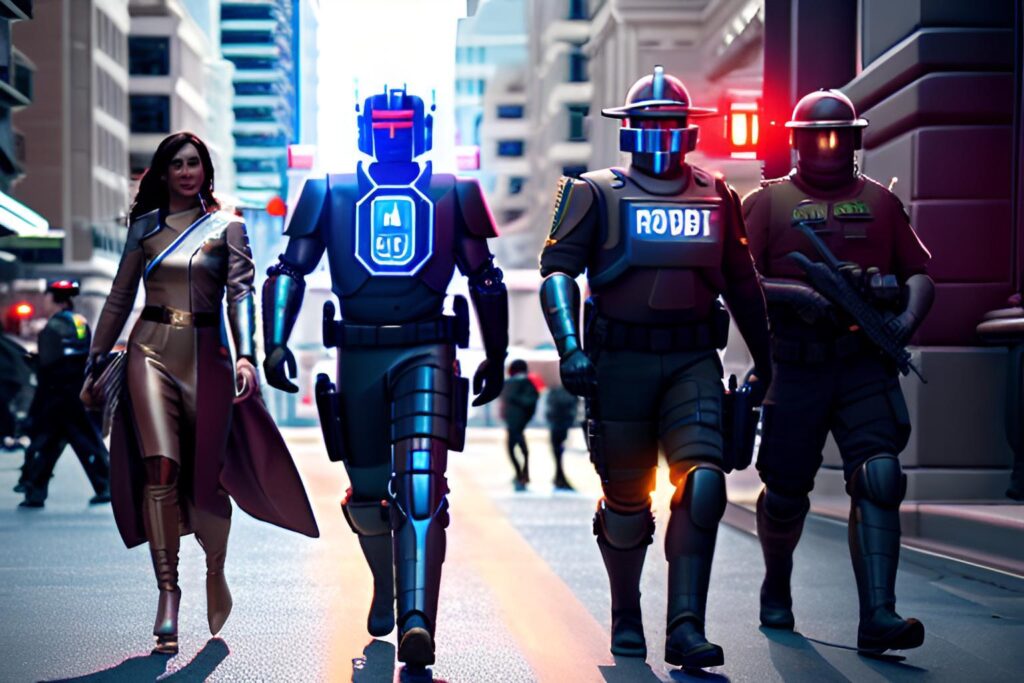
Ultimately, the successful culmination of this trial represents a significant victory for justice and sets a precedent for future accountability. The global community stands united in its condemnation of corruption and its commitment to upholding the principles of transparency, integrity, and the pursuit of the common good.

While the road ahead may be long and challenging, the moral robot police operation and the subsequent trial have given hope that no individual or entity is immune to the consequences of their actions. As the world continues to grapple with corruption, societies are encouraged to learn from this experience and work together towards a future where ethical leadership and justice prevail.
